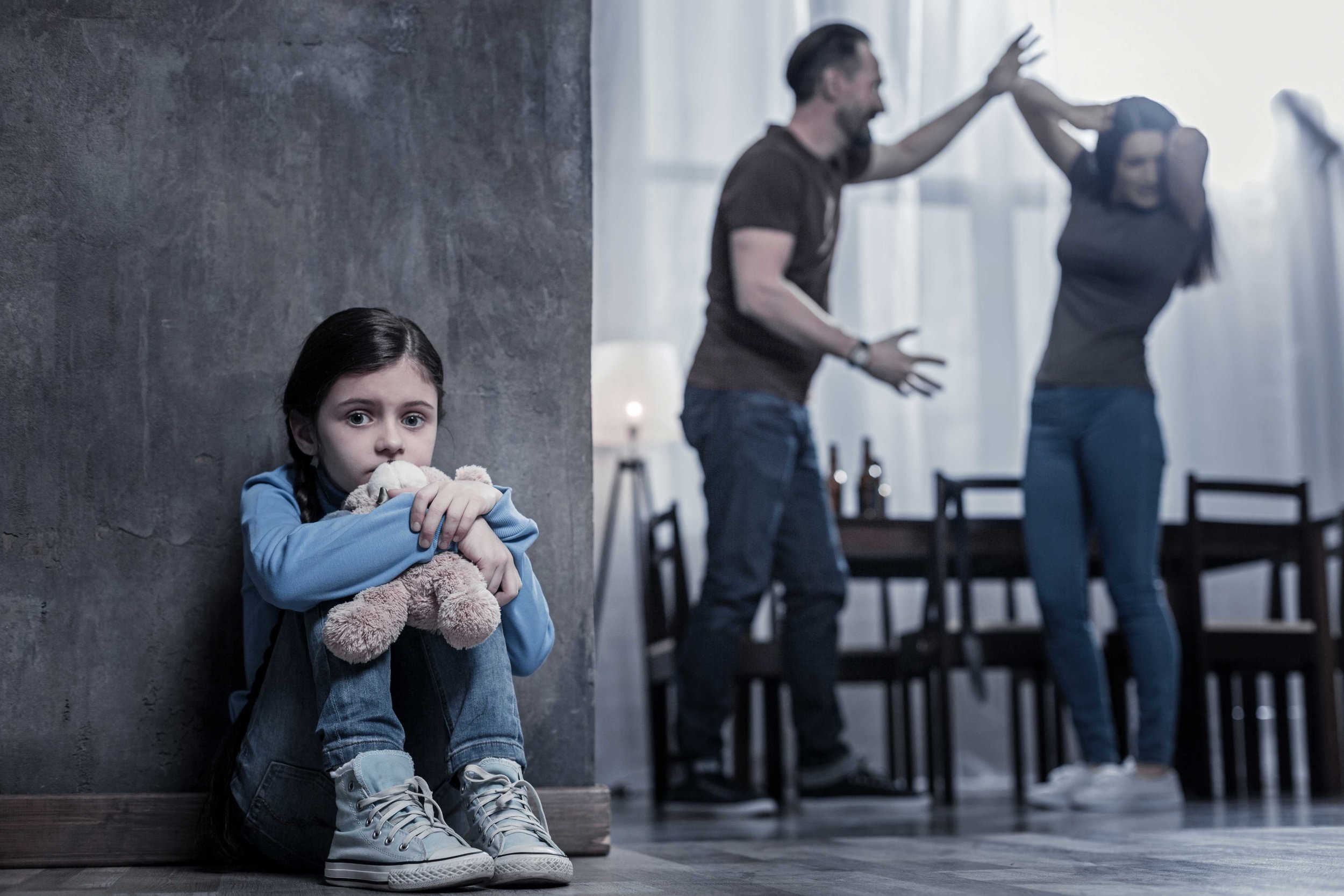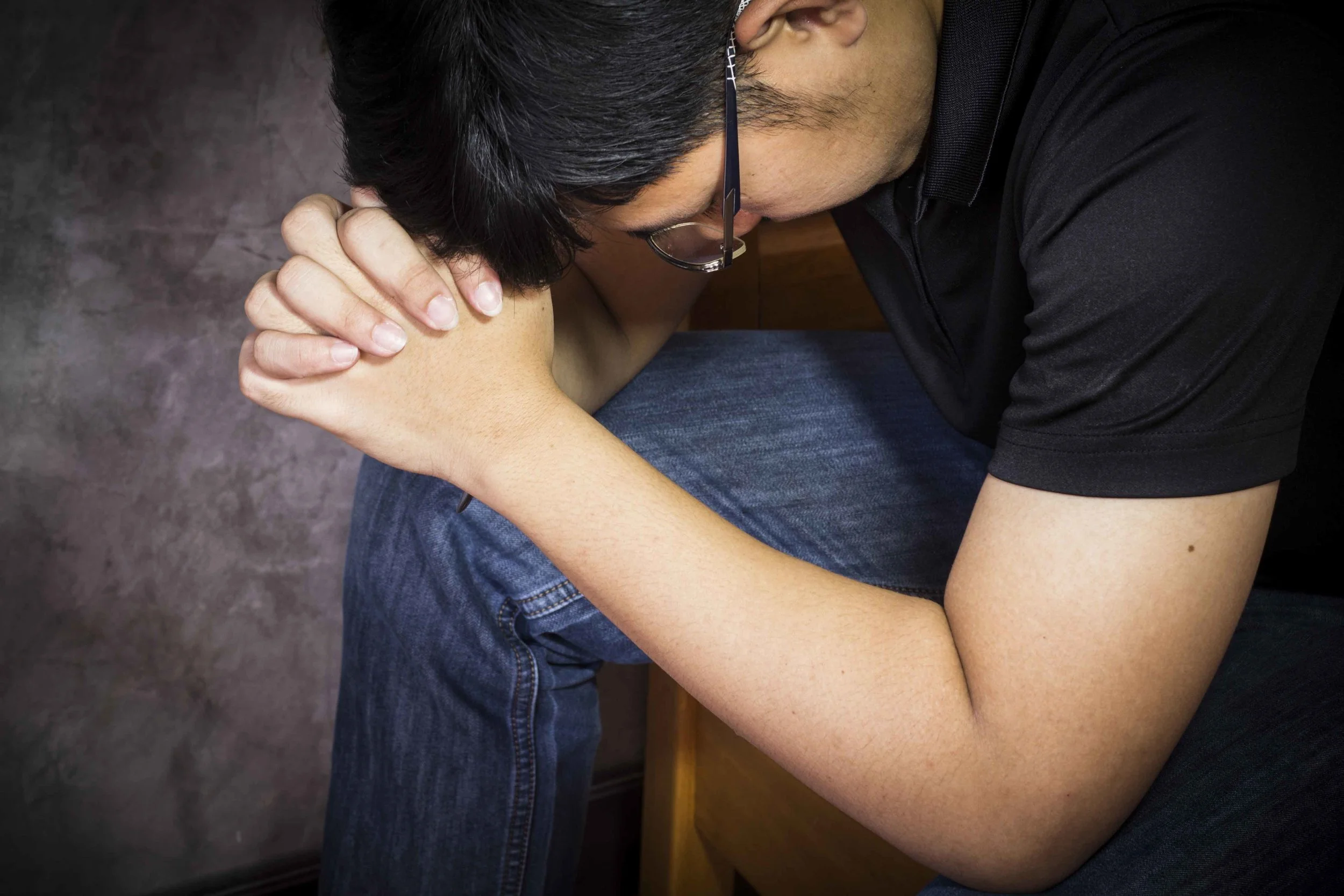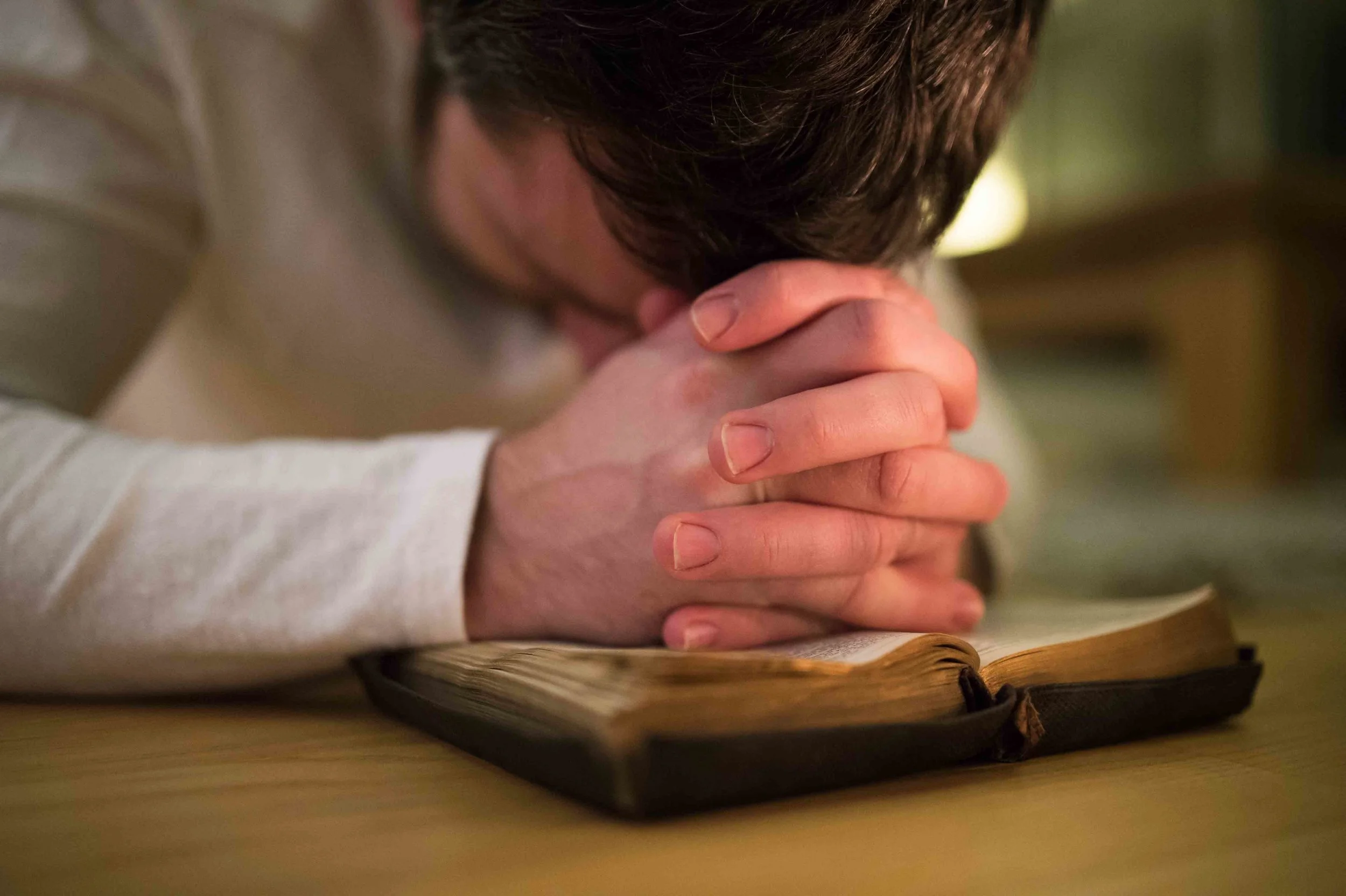The Building Blocks of Gender Confusion
/The Building Blocks of Gender Confusion – Dan Hitz
Dan Hitz is the director of Reconciliation Ministries of Michigan, Inc. and a Licensed Professional Counselor in the State of Michigan. This article is an introduction to the potential causes of gender confusion and accepting a transgender identity. As this is an extremely complex topic that cannot be fully covered within the scope of this newsletter, this article will serve as a general overview. Resources are presented at the end of this article which will provide a much more thorough exploration of gender confusion.
When God created human beings, he made them to be like himself. He created them male and female, and he blessed them and called them “human.” - Genesis 5:1b-2 NLT
As we begin our study into the potential causes of gender confusion and what may lead someone to accept a transgender identity, it is important to acknowledge that we have a Divine Creator who has a specific calling, purpose, and identity for each one of us. As Joe Dallas explains in his sermon, The Transgender Dilemma1, we need to acknowledge God’s created intent for each individual as either male or female. God knew us before we were in the womb (Jeremiah 1:5), and knit us together in the womb (Psalm 139:13) as either male or a female. Dallas says that our gender was likely one of the first things spoken about us when we made our appearance on this earth. All of us have scars on our bodies and in our hearts that bear witness to the reality that we are living in a fallen world. Everyone experiences trials and hardships that were not a part of God’s original intent for our lives. We also make decisions that are contrary to God’s created intent for us. Our feelings can lead us to do many things that can harm us, and lead us further away from God. The way back to true inner peace is to acknowledge God’s created intent for us, embrace the cross when our hearts want to do something contrary to God’s will, and live to the best of our ability according to God’s created intent – His will – for our lives. As Dallas says, “If I am one thing, but I feel like I am something else; the problem is not with what I am. The problem is with what I feel. Thereby, I am called to correct what I feel, not what I am.”1
In writing this article, it is my hope that by exploring and becoming more aware of the things that may contribute to gender confusion, we can be better equipped to respond to those who sincerely believe that they are trapped in the wrong body. We need to treat them with Christ-like compassion and grace. By identifying the causes of gender confusion, we identify the areas in our hearts where we need God’s help. We can seek His healing in those wounded areas of our hearts.
Many of the definitions used in the context of transgender issues have changed over time. I’ll list a few definitions to help this article be easier to understand. The term sex refers to a person’s physical body in terms of being male or female. Other terms for this are assigned sex and biological sex. Gender refers to the person’s emotional percept of being male or female. Thus, in today’s culture, a person’s sex may not be the same as a person’s gender. In other words, a person born with male anatomy who feels like he is trapped in the wrong body would identify his sex as male, and his gender as female. He would call himself a transwoman. A biological female who identifies as male would be called a transmale. The term transgender typically refers to a person who identifies as having a gender that differs from his or her sex. The terms gender confusion and gender dysphoria refer to the emotional distress someone has when his or her gender (the emotional perception of one’s maleness or femaleness) does not match his or her biological sex (anatomy). The terms gender confusion and gender dysphoria are used interchangeably in this article.
Aside from living in a fallen world, no one is certain what causes gender confusion. The American Psychological Association states in a recent article, “There is no single explanation for why some people are transgender. The diversity of transgender expression and experiences argues against any simple or unitary explanation. Many experts believe that biological factors such as genetic influences and prenatal hormone levels, early experiences, and experiences later in adolescence or adulthood may all contribute to the development of transgender identities.”2 The APA seems to have adopted the same “nature plus nurture”3 theory for transgender issues that they have for homosexuality. Even if scientist were to identify specific biological and genetic links to gender dysphoria, this does not mean that a person should automatically start taking steps to embrace a transman or transwoman identity. There are genetic links for such things as alcoholism and anger, yet most people would never think of encouraging someone to embrace alcoholism or anger as an identity.4 May we be those who are willing to walk alongside someone struggling with any life-defining challenge and help them embrace God’s will for their lives.
No one formula can adequately address the emotional factors that contribute to gender confusion. Everyone who struggles with gender confusion does not have the same life experiences. Needless to say, issues contributing to gender dysphoria are significant enough to cause the struggler to reject his or her birth gender. Many of the building blocks of transgender issues are similar to those of homosexuality, yet they go much deeper into the core of a struggler’s identity to fuel the desire to become another gender. Most of the time, these issues are running deep below the surface in the struggler’s heart. They may not be consciously aware of their own motivations until they begin the recovery process.
Many root issues of gender confusion are presented in testimony form in the DVD, Tranzformed: Finding Peace with your God-Given Gender, by Pure Passion Media.5 In this DVD, 16 men and women share their experiences from childhood and their journey into accepting a transgender identity. They also share their repentance, which lead to the acceptance of their true identity in Christ. Another good resource to identify causes of gender dysphoria is When Hope Seems Lost by Denise Shick6 founder of Help 4 Families. Both resources have contributed to this article
Many of those who struggle with transgender issues perceive their birth gender as less powerful and more vulnerable than the opposite gender. He or she may have been bullied and dominated by the other gender. He or she may have seen his or her parent of the same sex abused emotionally and/or physically by the other gender. A female who grows up in a family where the father is abusive and dangerous towards her and the mother, may reject her own femininity and seek to identify with the males who seem to be more powerful and less vulnerable. A boy who grows up with a domineering mother and has a female partner who is abusive, may give in to the desire to become what he perceives to be the more powerful gender. In these situations, victimization is a powerful incentive to embrace the opposite, “safer” gender.
Some struggling with gender dysphoria perceive that the other gender is celebrated much more than their own birth gender. They may have been told by their parents that they wished he or she were the opposite gender. A biological man being told by his mother and aunts that they knew he was supposed to be a girl when he was in the womb, may be brought up in a family that continues to communicate the message that he was supposed to be a girl. The message is made more powerful as broken family members continue to encourage him to embrace his female identity and may even dress him up in female clothes. He learns to embrace a female identity as a means of gaining affirmation and approval. A biological female growing up in a home where females are looked down upon while the males in the family are celebrated, may reject her femininity and embrace a male identity in an effort to gain approval.
Many struggling with transgender issues say that they have “felt different” than the others of their gender since they were a little kid. There can be many reasons for this, such as not being accepted by neighborhood kids because he or she isn’t good at, or interested in, activities usually enjoyed by other kids of his or her gender. A boy who doesn’t like sports but is skilled at dance and the arts, may be rejected by the other boys in the neighborhood. A girl who likes rough and tumble play may not get along well with the other girls in the neighborhood, but feels like she belongs with the boys. Rather than recognizing the diversity of interests that boys and girls have, this can lead to the idea that he or she is actually the opposite gender.
Some who struggle with gender dysphoria didn’t receive the nurturing that they needed from the same sex parent and have developed a deeper connection to the opposite sex parent. Simply by associating more with the opposite gender, he or she may develop similar interests and viewpoints to the opposite sex parents. If the opposite sex parent also feels disconnected from the child’s same sex parent, he or she may become enmeshed with the child in an attempt to fill up an emotional void in the parent’s own heart. This can lead the child to reject his or her birth gender and embrace the opposite gender.
A significant number of people struggling with gender dysphoria have experienced sexual abuse. Abuse breaks down sexual boundaries and confuses perceptions of sexual norms. Dr. Dan Allender, author of The Wounded Heart and Healing the Wounded Heart, notes that sexual abuse causes the victim to feel like his own body has betrayed him.7 Although the abuse may be unwanted and terrifying, the nerve endings in our private parts respond with pleasure. This often causes the victim to experience deep shame. Sometimes this causes the victim to reject her own gender in an attempt to make sense of the abuse, or protect herself from further abuse.
Denise Shick explains that sometimes emotional pain can be so extreme that a trauma victim seeks out a different identity in an attempt to leave his true identity behind.5 He may see his birth gender as a reminder of the trauma. If the trauma victim perceives that it was his gender that made him more vulnerable to the abuse, he may identify as a female in order to avoid future abuse.
Some people with gender dysphoria also suffer from mental health disorders that may be contributing to the desire to identify as another gender.6, 8 These may include depression, anxiety, obsessive compulsive disorder, post-traumatic stress disorder, and personality disorders. Very often, trans-affirming therapist are too quick to focus on helping the individual transition, rather than addressing the mental health issues that may be contributing to the gender dysphoria.
Teens face many challenges to their developing sexuality. Sometimes a young person may be confused if he experiences same-sex attraction and wonder if he is actually supposed to be the opposite gender. Sexual experiences and experimentation with dressing up in the opposite gender’s clothing may become enticing and may lead the person to further explore the thought of becoming the other gender altogether. When masturbation is added to the experimentation, the body releases hormones that actually encourage the behavior the person engaged in while masturbating. All of these factors can propel the teen further down the road of gender confusion.
With the acceptance of homosexuality being old news and the explosive advancement of accepting a transgender identity, many more teens are coming out as transgender than would be expected from traditional statistics. This is particularly the case for females. Researchers have identified a social contagion effect in teens and young adults whereby one person in a social group coming out as transgender prompts many more in that social group to come out as transgender.9 A substantial number of these teens have not previously expressed transgender thoughts as is the case in traditional transgender conditions. This is called rapid-onset gender dysphoria. Parents report that before their teens and young adults came out, there was a significant increase in Internet and social media use. Many of those newly identifying as transgender began following social media influencers who were documenting their own transition process. After they come out, their relationships with parents and non-LGBTQ people deteriorate, often to the point of open animosity.
Whatever the cause of gender dysphoria, multiple research studies indicate that anywhere from 70 to 80 percent of prepubescent children who identify as transgender will grow up to embrace their birth gender without counseling or direct intervention.10 This further illustrates the dangers of prescribing puberty blocking hormones to adolescents and pre-adolescents, and highlights the need to focus on the root issues of gender confusion rather than the symptoms.
Knowing some of the potential root issues contributing to gender confusion can help us know where to focus our prayer and recovery efforts. Remember, everyone is different and not everyone will fit into any specific pattern. The overcomer will have to be willing to take an honest look deep inside his or her heart, and be willing to surrender some longstanding defense mechanisms. He or she will need to acknowledge the fears and apprehensions associated with embracing his or her birth gender. It is important to embrace the small steps of change on the way to healing and celebrate the small victories throughout the journey. It is important to find a good Christian caregiver who is experienced in helping men and women explore the roots of their gender confusion, receive healing, and learn to embrace their God-given sex and gender. An experienced Christian caregiver can hear his or her heart and offer compassionate care without judgement.
Help is available…
Reconciliation Ministries www.recmin.org
Help 4 Families www.help4families.org
Walt Heyer Ministries www.sexchangeregret.com
Linda Seiler www.lindaseiler.com
References
1 Dallas, Joe. (2019, March 17). The Transgender Dilemma. Sermon preached at Calvary Chapel Rialto, California. Retrieved from https://vimeo.com/324879265?fbclid=IwAR2QiN776HjGZkroqPgLvAnET4wTiC72KdISAYZqUcwvTKP10HlIbkbUJ3U on 4/5/2019.
2 American Psychological Association. Answers to Your Questions: About Transgender People, Gender Identity and Gender Expression. Washington, DC. December, 2014. Retrieved from https://www.apa.org/topics/lgbt/transgender on 4/5/2019.
3 American Psychological Association. Answers to Your Questions: For a Better Understanding of Sexual Orientation and Homosexuality. Washington, DC. 2008, p2. Retrieved from https://www.apa.org/topics/lgbt/orientation.pdf on 1/11/2019.
4 Straight Answers: Exposing the Myths and Facts about Homosexuality, Love Won Out Series, Focus on the Family Publishing, Colorado Springs, CO. 2000, p. 10.
5 Foster, David Kyle Foster (Producer), & Sutton, Karl. (Director). (2017). Tranzformed: Finding Peace with your God-Given Gender. United States: Pure Passion Media & Mastering Life Ministries.
6 Shick, Denise. When Hope Seems Lost. Help 4 Families Press, Ashland, KY, 2011.
7 Allender, Dr. Dan. Effective Trauma Care. Allender Center training. Wheaton College, Wheaton, Illinois. March 14-16, 2019.
8 Heyer, Walter, Trans Life Survivors. Bowker Identifier Services, 2018.
9 Veissiere, Samuel, Ph.D. “Why Is Transgender Identity on the Rise Among Teens?” Psychology Today. Posted November 28, 2018. Retrieved from https://www.psychologytoday.com/us/blog/culture-mind-and-brain/201811/why-is-transgender-identity-the-rise-among-teens on 4/5/2019.
10 Cantor, James. “How Many Transgender Kids Grow Up to Stay Trans?” PsyPost. Posted December 30, 2017. Retrieved from https://www.psypost.org/2017/12/many-transgender-kids-grow-stay-trans-50499 on 2/24/2019.
First three images used under license from www.shutterstock.com.
Forth image used with permission from www.unsplash.com.
© 2019 Reconciliation Ministries of Michigan, Inc. This article may be reproduced and distributed as long as no fee is charged and credit is given to Reconciliation Ministries of Michigan, Inc.

















![MP900227829[1].jpg](https://images.squarespace-cdn.com/content/v1/56cb43860442628a65205b5d/1548290925326-LBG6ZAB1DBWBK8YQID0S/MP900227829%5B1%5D.jpg)
![MP900386518[1].jpg](https://images.squarespace-cdn.com/content/v1/56cb43860442628a65205b5d/1548291108216-IXDFR8EFDYHTCT5FSM9L/MP900386518%5B1%5D.jpg)
































![Logo-DSM-LW-4C-e1392917867466[1].png](https://images.squarespace-cdn.com/content/v1/56cb43860442628a65205b5d/1505925377234-00XFGXS4HMY5OTTAF79B/Logo-DSM-LW-4C-e1392917867466%5B1%5D.png)









